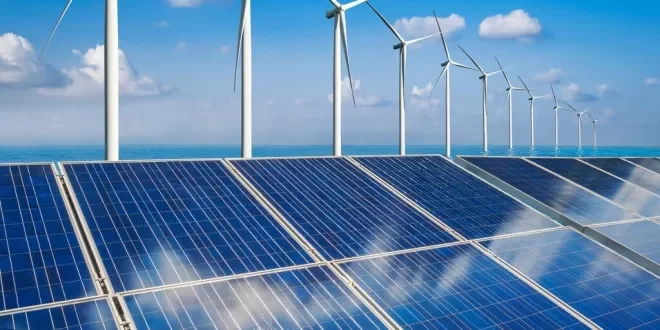New British Prime Minister Liz Truss removed a ban on drilling for shale gas, an effort to boost domestic energy supply that will have to overcome the same obstacles that stymied the industry for the past decade.
The lifting of the moratorium on so-called fracking was part of a package of measures announced on Thursday to tackle soaring energy prices that are hammering households and businesses. Even with the renewed government support, the shale gas industry still faces an uncertain road, with significant opposition from local communities and challenges related to the country’s geology.
Earlier this year, the UK’s meager fracking industry faced its last rites. Cuadrilla Resources, the company behind the country’s first major shale gas discovery in 2011, was poised to plug and permanently abandon two exploration wells in Lancashire. But Russia’s invasion of Ukraine handed the firm a reprieve as the regulator withdrew the order to close the wells and the government of former Prime Minister Boris Johnson considered whether to allow a restart of drilling.
Truss said the lifting of the moratorium could result in additional gas supplies within as little as six months, but she has removed only one of several obstacles to British shale. Key to her announcement is that it will “enable developers to seek planning permission where there is local support.”
That may be challenging, given the vehement local opposition that has accompanied any attempts to drill for shale gas in the past decade. Residents worried about the risk of earthquakes or the disruption from fleets of trucks carrying equipment and workers, plus campaigners opposed on climate grounds, have frequently halted the industry’s operations. Only 17% of people in the UK support fracking, according to a government survey conducted last year.
“Before the fracking moratorium, the industry had ten years of the government ‘going all out for shale’ and giving them all the support denied to onshore wind,” said Georgia Whitaker, oil and gas campaigner for Greenpeace UK. “In that time, the frackers produced no energy for the UK, but managed to create two holes in a muddy field, traffic, noise, earthquakes and enormous controversy.”
The geology of Britain’s rocks also make a US-style boom unlikely.
“We’ve got the wrong kind of shale in the UK,” said Jon Gluyas, director of Durham University’s energy institute. “We will get some shale gas out, but it won’t scale in the same way” as the US, he said.
There are a few key differences between the rocks below Britain and those in America’s Permian Basin. The best performing shale reservoirs in the US are found in rocks that are largely silica-based. That allows for the drilling of sturdy wells that will last a long time. In the UK, the ground is made of clay that won’t hold a fracture for as long.
Also, the rock in the US is uniform over large tracts of land, but in the UK can vary widely below the surface, making it impossible to replicate techniques quickly and ramp up production, he said.
A better solution for boosting UK gas production may lie in the North Sea, where industry has been extracting energy for decades and there are still plenty of resources left, Gluyas said.
Truss’s said her government will proceed with an offer of new North Sea exploration licenses announced earlier this year, with more than 100 new permits available.
![]()




